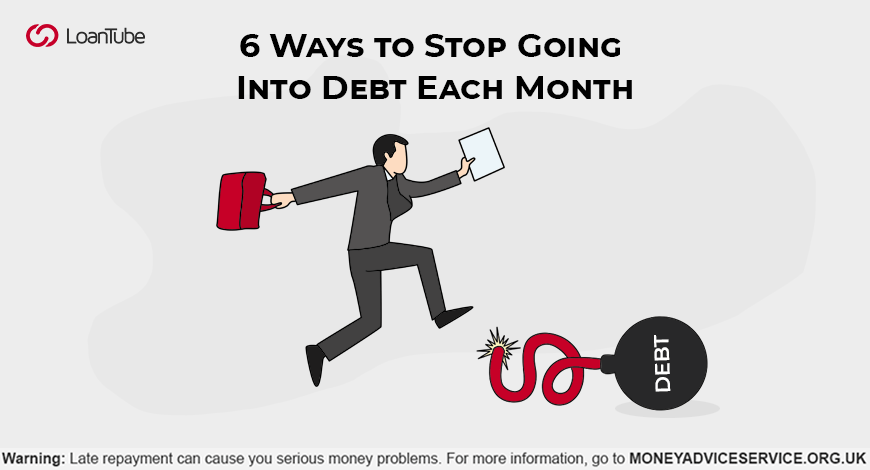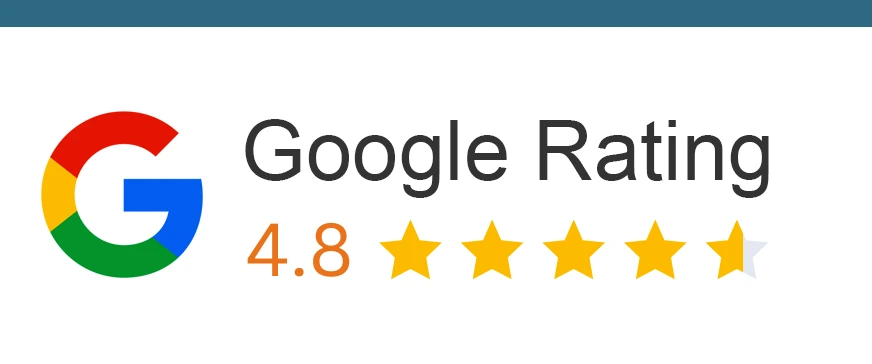Managing money is not as easy as it sounds. Your employment, your home, your expenses, your lifestyle – everything impacts your finances. Debt can help your immediate financial needs. But what happens when you find yourself stuck in a debt trap? What changes should you adopt to break the cycle? In this article, we will discuss 6 ways to stop going into debt each month.
“Chains of habit are too light to be felt until they are too heavy to be broken.” – Warren Buffet
Over half of the adults in the UK headed into 2020 with the burden of debt. As of July 2020, the average total debt in a UK household was recorded as £60,403. Of this, £3947 accounts for the total unsecured debt per UK adult, and £2238 is the average credit card debt per UK household.
As per a survey of 2000 UK citizens aged between 16 and 64, 38% of the adults had outstanding credit card balance. If you too are using a credit card, pay the balance in full and on time to avoid accumulating debt.
A debt trap is the worst thing to happen to someone with a weak financial resilience strategy. While you can’t completely eradicate the possibility of debt, there are ways to handle it smartly. All you need to do is move your debt around to avail better deals, which could save hundreds of pounds.
In this article, we’ll discuss everything about debt and what you could do to stop going into debt each month.
Maximise your options: Compare and apply for loans below with LoanTube
Apply Filters
Reasons why people go into debt
For all of us, the ultimate goal is to lead a debt-free life. But before you start building a strategy against debt, you need to understand why you’re falling prey to it. We’ve listed out some of the most common reasons below:
- Reckless spending: All of us have our vices, but some of them are more detrimental than others. Spending your money recklessly when you don’t have enough dispensable income is a recipe for a disaster. Going on a spending extravaganza when you lack the means, can put you into debt.
- Emergency / Medical expenses: Some expenses are simply unavoidable and your savings may not suffice. Some medical procedures cost thousands of pounds if you’re not insured. Unprecedented medical emergencies are some of the most common reasons people acquire debt.
- Economic crisis: Given the current scenario, it’s not a surprise to see people acquire new debt. An economic plunge or natural catastrophe can cause serious monetary damage. If your finances take such a hit, you are more likely to fall into debt.
- Insufficient Savings: If you are not in the habit of saving money, an emergency expense may swipe away all your cash. This will leave you with no choice but to take a loan to recover from the loss.
What are good and bad debts?
- Debt can be both good and bad, even if it is accompanied by high rates of interest. Excessive debt can indeed diminish your chances of getting a loan in the future. Too much debt can also cause financial stress.
- Despite these arguments, people continue to get into debt. This is because some forms of debt can be used for constructive purposes. A good debt acts as an investment towards a better future. For instance, you take out a student loan to fund your education – this will help you enhance your knowledge and skillset to maximize your potential. A student loan, thus, acts as an investment in a human resource. Similarly, financing your property with a mortgage helps you build an asset without agitating your finances.
- On the contrary, bad debt is a result of irresponsible credit behavior. For instance, you purchase an expensive TV and buy a luxurious recliner to go with it, all on a credit card. Now you feel overwhelmed with the repayments and fail to keep up. The debt will probably haunt you force you to acquire another one to make up for the loss. This might lead you into a debt trap.
How to avoid going into debt each month?
It’s never too late to bounce back onto the right path. So, if you want to avoid acquiring more debt the next month, you need to act immediately. Take command of your finances to secure your financial future. The following are some steps to help you get back on track:
- Jot down your income and compare the expenses: This is the first and foremost step to understand if your income can support all the necessary expenditures. Necessities include food, shelter, clothing, and laundry. If your income can’t cover these, you might want to consider maximizing it or slashing other expenses. For instance, if you’re renting a place and the rent is taking up over 25% of your income, you might want to consider moving to cheaper accommodation.
- Create a budget and stick to it: After comparing your expenses with your income, the next step is to allocate money to each expense through a Budget. A budget allows you to control where your money is going. Tracking your money can help you identify and rectify your problem areas when it comes to spending. If you sincerely adhere to your budget, it’ll help you to stop spending at the end of the month. A well-planned budget should ideally allocate money to all necessary expenses. You can avoid trivial expenses until you’re no longer in the habit of overspending.
- Curb your temptation to spend: A credit card is a quick and convenient mode of payment. A lot of us tend to overspend while using a credit card, mostly because it helps us cover our tracks. Money, on the other hand, leaves a ‘paper trail’ because you’ll simply know when you’re out of cash. If you find it tough to stick to limits, switch to cash payments. The key is to treat this cash as the only available mode of payment, without relying on a credit/debit card. So when you’re on a shopping spree next time, leave your card at home and carry limited cash. Because, needless to say, you have a budget to abide by!
- Starting building an emergency fund: In case of an emergency, you would instinctively use your credit card to cover the expense. Thus, a fund designed especially to cater to such situations will help your minimize your credit card usage. Start by setting aside £1000 – £2000 for the emergency fund. This should suffice for most emergencies, including car repair or medical costs. Once you find your way out of the debt cloud, keep adding more money to grow this fund.
- Cut the inessentials loose: If you have an ongoing debt, you need to push extra money towards it. A good way is to cut down on the inessential expenses. If you have a gym membership and you barely use it, cancel it and get the money reimbursed. Similarly, you could switch to cheaper cable and cellular plans to save up some more. How about selling that old treadmill hiding in the attics? That could free up some more cash. Alternatively, you could find a side hustle to make extra money and put your skills to use.
- Make a separate savings pot: Now that you’ve figured how to get out of debt, you can make a savings pot for some major purchases that are in the pipeline. The aim is to make a purchase only when you’ve saved up to afford it to avoid additional debt. Even if you want to finance your purchase, you’ll have the peace of knowing that you can afford the monthly repayments. You can use budgeting apps to make savings pots for your upcoming purchases.
In Conclusion
- It’s never too late to put your finances back on track. Debt can have serious repercussions on your financial and mental health. The more money you raise, the sooner you’ll be out of debt. To ease the whole process, try devising a plan to deal with your repayments.
- If you have multiple debts, the best way to speed up the process is by taking out a personal loan to consolidate debt. A debt consolidation loan will help you combine all your loans and make your repayments easier. The sooner you recover from your debt, the sooner you’ll be able to spend on the things you want.
- It is always important to shop around for loans before accepting an offer. But you might lose track of your applications while applying with different lenders. LoanTube helps you compare multiple loans offers based on Real Interest Rates. Check your acceptance rate on Unsecured and Secured loans and compare Real APRs to find your ideal loan.
Compare Personal Loans based on Real Interest Rates


